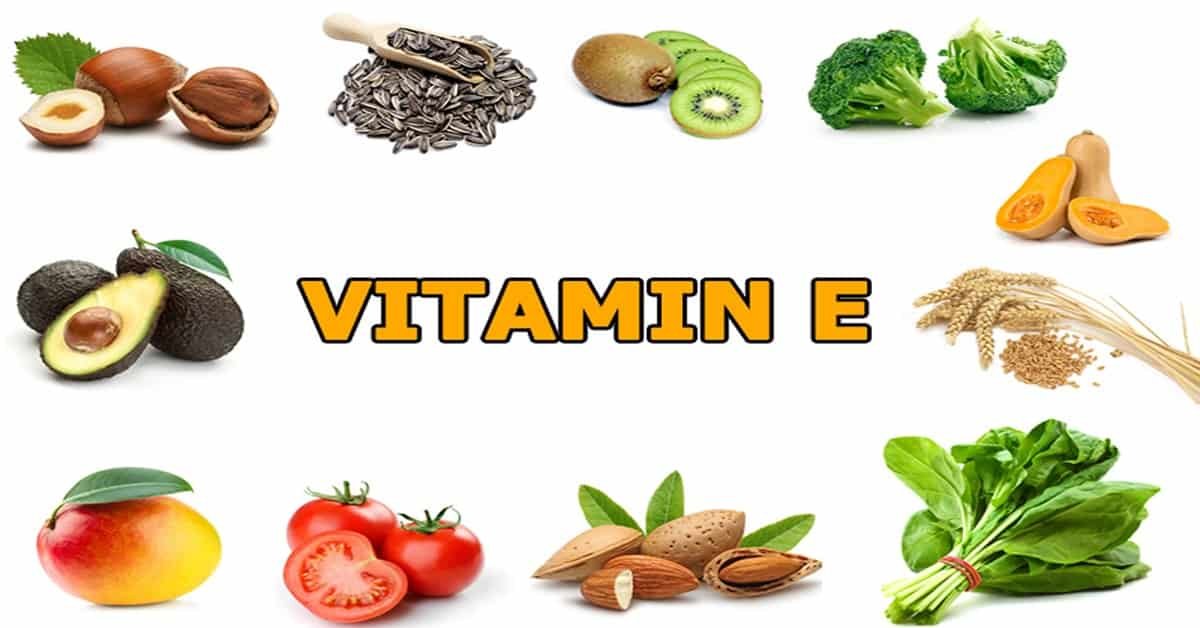Vitamin E is a fat-soluble antioxidant that is crucial for various bodily functions. It consists of a group of compounds, the most active of which is alpha-tocopherol. Here are the many benefits associated with adequate Vitamin E intake:
1. Antioxidant Properties
- Cell Protection: Vitamin E is well-known for its antioxidant capabilities, which help neutralize free radicals—unstable molecules that can damage cells and contribute to aging and various diseases, including cancer and heart disease.
2. Heart Health
- Cardiovascular Protection: Vitamin E may promote heart health by inhibiting the oxidation of LDL cholesterol (often referred to as “bad” cholesterol) and reducing the risk of atherosclerosis (hardening of the arteries). It also supports overall endothelial function, which plays a role in heart health.
3. Immune Function
- Boosting Immunity: Vitamin E is crucial for maintaining a healthy immune system. It helps in the activation of immune cells, particularly the T-helper cells, and can enhance immune responses, particularly in older adults, who often have diminished immune function.
4. Skin Health
- Skin Protection: Vitamin E is often incorporated into skincare products due to its ability to protect skin cells from oxidative stress and UV damage. It also helps with skin hydration, reduces inflammation, and enhances the overall appearance of the skin.
5. Eye Health
- Protection Against Eye Disorders: Some evidence suggests that Vitamin E may lower the risk of age-related macular degeneration (AMD) and cataracts. It works in conjunction with other antioxidants to protect the eyes from oxidative damage.
6. Hormonal Balance
- Regulating Hormones: Vitamin E plays a role in the synthesis of hormones and may help balance hormonal levels in the body, which can be particularly beneficial for women experiencing menopausal symptoms.
7. Cognitive Health
- Neuroprotective Effects: Vitamin E has been studied for its potential to protect against cognitive decline and neurodegenerative diseases like Alzheimer’s. It may help reduce oxidative stress in the brain, contributing to better mental function as we age.
8. Anti-Inflammatory Effects
- Reducing Inflammation: Vitamin E may have anti-inflammatory properties, which can help reduce chronic inflammation in the body—a factor associated with various chronic diseases, including heart disease and diabetes.
List of Foods That Contain Vitamin E
Vitamin E is found in a variety of foods, particularly those that contain healthy fats. Here’s a list of foods rich in Vitamin E:
Nuts and Seeds
- Almonds
- Hazelnuts
- Sunflower Seeds
- Pine Nuts
- Peanuts
Oils
- Wheat Germ Oil (the richest source)
- Sunflower Oil
- Safflower Oil
- Olive Oil
- Canola Oil
Fruits
- Avocado
- Kiwi
- Mango
- Blackberries
- Papaya
Vegetables
- Spinach
- Kale
- Swiss Chard
- Broccoli
- Sweet Potatoes
Fortified Foods
- Fortified Breakfast Cereals
- Certain Plant-based Milk Alternatives (like almond milk)
FAQs About Vitamin E
1. What is the recommended daily intake of Vitamin E?
- The recommended dietary allowance (RDA) for Vitamin E varies by age and gender:
- Adults: 15 mg (22.4 IU)
- Pregnant Women: 15 mg (22.4 IU)
- Lactating Women: 19 mg (28.4 IU)
2. Can I get enough Vitamin E from food?
- Yes, most people can meet their Vitamin E needs through a balanced diet rich in nuts, seeds, oils, and green leafy vegetables without needing supplements.
3. What are the symptoms of Vitamin E deficiency?
- Deficiency in Vitamin E is rare, but it can lead to symptoms such as muscle weakness, vision problems, immune deficiency, and neurological problems, including ataxia (loss of control of bodily movements).
4. Can excessive Vitamin E intake be harmful?
- Yes, while Vitamin E from food is considered safe, high doses of Vitamin E supplements can lead to adverse effects, including an increased risk of bleeding, particularly in individuals taking anticoagulant medications.
5. Is Vitamin E important for skin health?
- Yes, Vitamin E is widely used in skincare products for its protective effects against oxidative stress and its ability to moisturize and heal the skin. It can help mitigate UV damage and reduce the appearance of scars.
6. Does Vitamin E support heart health?
- Vitamin E may support heart health by inhibiting the oxidation of LDL cholesterol and promoting overall cardiovascular function, although research results have been mixed regarding its effectiveness as a supplement.
7. What factors can affect Vitamin E absorption?
- As a fat-soluble vitamin, the absorption of Vitamin E can be influenced by the presence of dietary fats. Conditions that affect fat absorption, such as celiac disease, cystic fibrosis, and liver disorders, can impair Vitamin E absorption in the body.
8. Are there any interactions with medications?
- Yes, Vitamin E may interact with certain medications, particularly anticoagulants (blood thinners) and some cholesterol-lowering medications. It’s vital to consult with a healthcare provider before starting Vitamin E supplements, especially if you are on medication.


